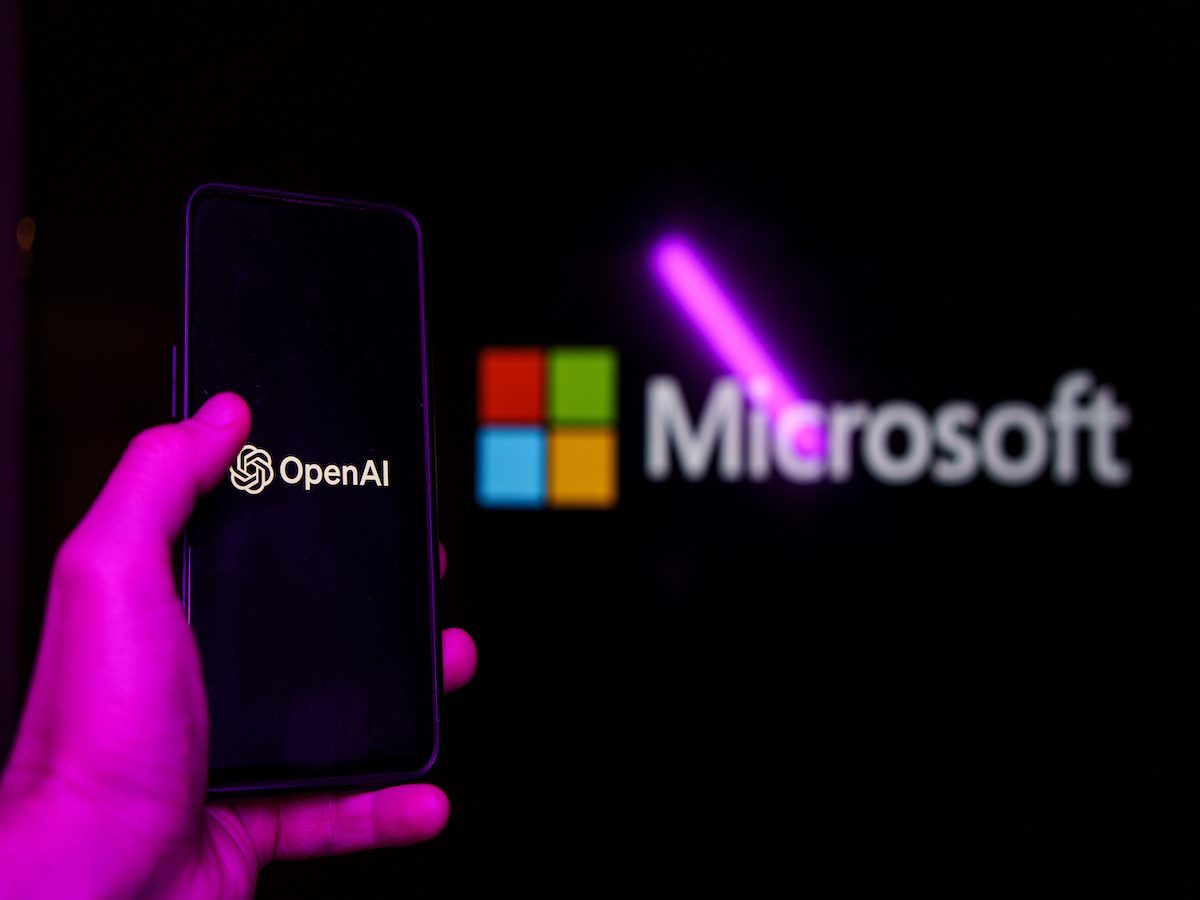Key Takeaways
- Microsoft-OpenAI agreement restructured. Microsoft and OpenAI sign new partnership agreement that supports OpenAI’s shift to a public benefit corporation.
- Greater flexibility for innovation and third-party partnerships. The revised terms allow both companies to independently pursue AI development and collaborate with additional partners outside the original exclusivity framework.
- Clearer roadmap for enterprise AI buyers. The agreement offers technology buyers better visibility into Azure infrastructure commitments and intellectual property rights.
Microsoft and OpenAI have signed a new definitive agreement that restructures their partnership while supporting OpenAI's transition to a public benefit corporation (PBC). According to company officials, the agreement preserves key elements of their collaboration while adding provisions for independent innovation.
Following the recapitalization, Microsoft now holds an investment in OpenAI Group PBC valued at approximately $135 billion, representing about 27% ownership on an as-converted diluted basis. The agreement maintains OpenAI's position as Microsoft's frontier model partner with exclusive IP rights and Azure API exclusivity until Artificial General Intelligence (AGI) is achieved.
What’s New in the Microsoft–OpenAI Agreement
According to Microsoft officials, The restructured Microsoft-OpenAI agreement introduces several key changes:
| Partnership Provision | Term Summary |
|---|---|
| AGI Verification | Independent expert panel will verify AGI declaration |
| Extended IP Rights | Microsoft's rights extended through 2032, including post-AGI models |
| Third-Party Development | OpenAI can jointly develop products with other companies |
| Independent AGI Pursuit | Microsoft can pursue AGI alone or with other partners |
| Government Access | OpenAI can provide API access to US national security customers |
| Open Weight Models | OpenAI can release models meeting capability criteria |
| Azure Commitment | OpenAI contracted to purchase $250B in Azure services |
Who This AI Partnership Affects Most
- Enterprise Technology Buyers. CIOs and IT decision-makers evaluating AI infrastructure now have clearer insight into OpenAI’s Azure commitments and Microsoft’s long-term IP rights. These terms could influence vendor selection, deployment timelines and future-proofing strategies.
- Cloud Service Providers. Competing hyperscalers like AWS, Google Cloud and Oracle must now navigate a more defined Microsoft–OpenAI alliance, which could limit access to frontier models and accelerate Azure’s AI dominance.
- Government and National Security Agencies. With new provisions allowing OpenAI to offer API access to US national security customers, public sector leaders may see expanded opportunities — or new dependencies — in AI procurement and deployment.
Related Article: OpenAI Pushes Into Enterprise Search With Company Knowledge
The Bigger Picture: AI Power Plays and Global Stakes
Microsoft and OpenAI's partnership, dating back to 2019, has shown signs of strain in recent years. By early 2025, strategic tensions emerged as OpenAI explored broader opportunities while Microsoft sought greater control over its AI roadmap. This relationship has been central to Microsoft's Copilot and other enterprise AI offerings.
The broader AI landscape has seen ownership shift dramatically from government labs to private tech giants. According to industry reports, approximately 75% of the world's large-scale AI compute capacity now resides in the United States, with companies like Microsoft, OpenAI and Nvidia controlling most frontier compute resources.
This concentration has triggered a wave of strategic investments, including Nvidia's planned $100 billion stake in OpenAI announced in September. The AI sector has seen significant consolidation through mergers and acquisitions as companies seek competitive advantages in specific markets.
For enterprise buyers, these partnerships affect access to AI hardware, pricing models and supply chain priorities, potentially incentivizing diversification strategies as the gap between massive infrastructure investments and actual revenue returns continues to widen.
